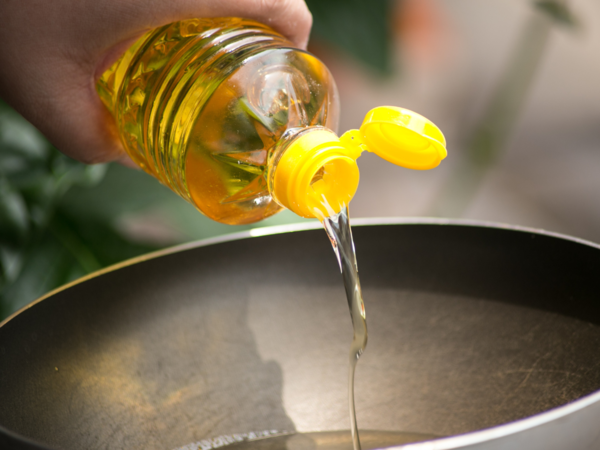Many seemingly harmless store-bought foods contain hidden ingredients that pose significant health risks. Food dyes like Red 40 and Yellow 5 are linked to hyperactivity, while titanium dioxide, used to whiten foods, is classified as a potential carcinogen. Other concerning additives include brominated vegetable oil, potassium bromate, and high fructose corn syrup, all associated with various health problems.
Store-bought ingredients and foods may appear innocuous, however, they are increasingly posing new health challenges. Relying solely on reading labels might not be enough to protect you from potential health hazards. From your favorite breakfast cereal to that seemingly healthy protein bar, many contain hidden ingredients that can negatively impact your well-being. Here are some everyday ingredients that warrant a closer look:

Food dyes are ubiquitous, found in everything from candies to flavored rice. While these synthetically produced dyes may enhance the visual appeal of food, the potential health costs are substantial. Artificial food dyes, such as Red 40 and Yellow 5, have been linked to neurobehavioral issues, particularly in children, with some studies suggesting a correlation with increased hyperactivity.
Earlier this year, the U.S. Food & Drug Administration (FDA) banned Red No. 3, a dye used to impart a bright cherry-red color to foods and beverages, due to its association with cancer. However, its use persists in several other countries.
We appreciate food that looks appetizing, and titanium dioxide plays a role in achieving that aesthetic. This chemical is used to whiten foods such as coffee creamers, candies, sunscreen, and toothpaste. However, the FDA classifies titanium dioxide as a Group 2B carcinogen, indicating it is potentially carcinogenic to humans. The nanoparticles present in titanium dioxide may trigger inflammation and oxidative stress within the body.

Brominated vegetable oil (BVO) is a food additive used as an emulsifier, primarily in citrus-flavored drinks. It prevents flavor oils from separating from the liquid. Studies have linked BVO consumption to neurological problems, thyroid dysfunction, and damage to the heart and liver. While banned in Europe and the U.S., BVO remains in use in several other countries.

Potassium bromate serves as a flour additive in bread-making, strengthening the dough. However, the World Health Organization classifies it as a possible human carcinogen. This ingredient is banned in Europe, Canada, and other regions due to its classification as a nephrotoxin in both animals and humans and its association with kidney and thyroid tumors in animals.

High fructose corn syrup (HFCS) is a sweetener widely used in sodas and snacks. It is considered a leading contributor to obesity and diabetes. Research suggests that HFCS intake can disrupt metabolism, leading to increased fat storage and insulin resistance. From sugary beverages to processed foods, HFCS is a prevalent ingredient.
Newer articles
Older articles
 Patience Urged for Australia's Rebuilt Top Order Amidst Test Transition
Patience Urged for Australia's Rebuilt Top Order Amidst Test Transition
 Kohli's Composure Under Pressure: Sharma Credits Mental Fortitude for Key Innings
Kohli's Composure Under Pressure: Sharma Credits Mental Fortitude for Key Innings
 West Indies Coach Daren Sammy Fined, Reprimanded for Umpire Criticism
West Indies Coach Daren Sammy Fined, Reprimanded for Umpire Criticism
 Bangladesh Coach Phil Simmons Leaves Sri Lanka Tour for Medical Check-up in London
Bangladesh Coach Phil Simmons Leaves Sri Lanka Tour for Medical Check-up in London
 Rishabh Pant: Greg Chappell Hails India Star as Cricket Revolutionary
Rishabh Pant: Greg Chappell Hails India Star as Cricket Revolutionary
 Pant's Fearless Hitting vs. England Draws Adam Gilchrist Comparisons From Greg Chappell
Pant's Fearless Hitting vs. England Draws Adam Gilchrist Comparisons From Greg Chappell
 IND vs ENG, 2nd Test: Rishabh Pant's Composed Reply Silences Harry Brook's Sledge About Fastest Century
IND vs ENG, 2nd Test: Rishabh Pant's Composed Reply Silences Harry Brook's Sledge About Fastest Century
 Neeraj Chopra Tips Jasprit Bumrah for Javelin Success, Cites Cricketer's Strength and Fitness
Neeraj Chopra Tips Jasprit Bumrah for Javelin Success, Cites Cricketer's Strength and Fitness
 Gambhir Backs India's Lower Order Despite Headingley Test Collapse, Cites Costly Dropped Catches
Gambhir Backs India's Lower Order Despite Headingley Test Collapse, Cites Costly Dropped Catches
 Carlsen on Gukesh's World Champion Status: 'Impressing Me Still a Question'
Carlsen on Gukesh's World Champion Status: 'Impressing Me Still a Question'